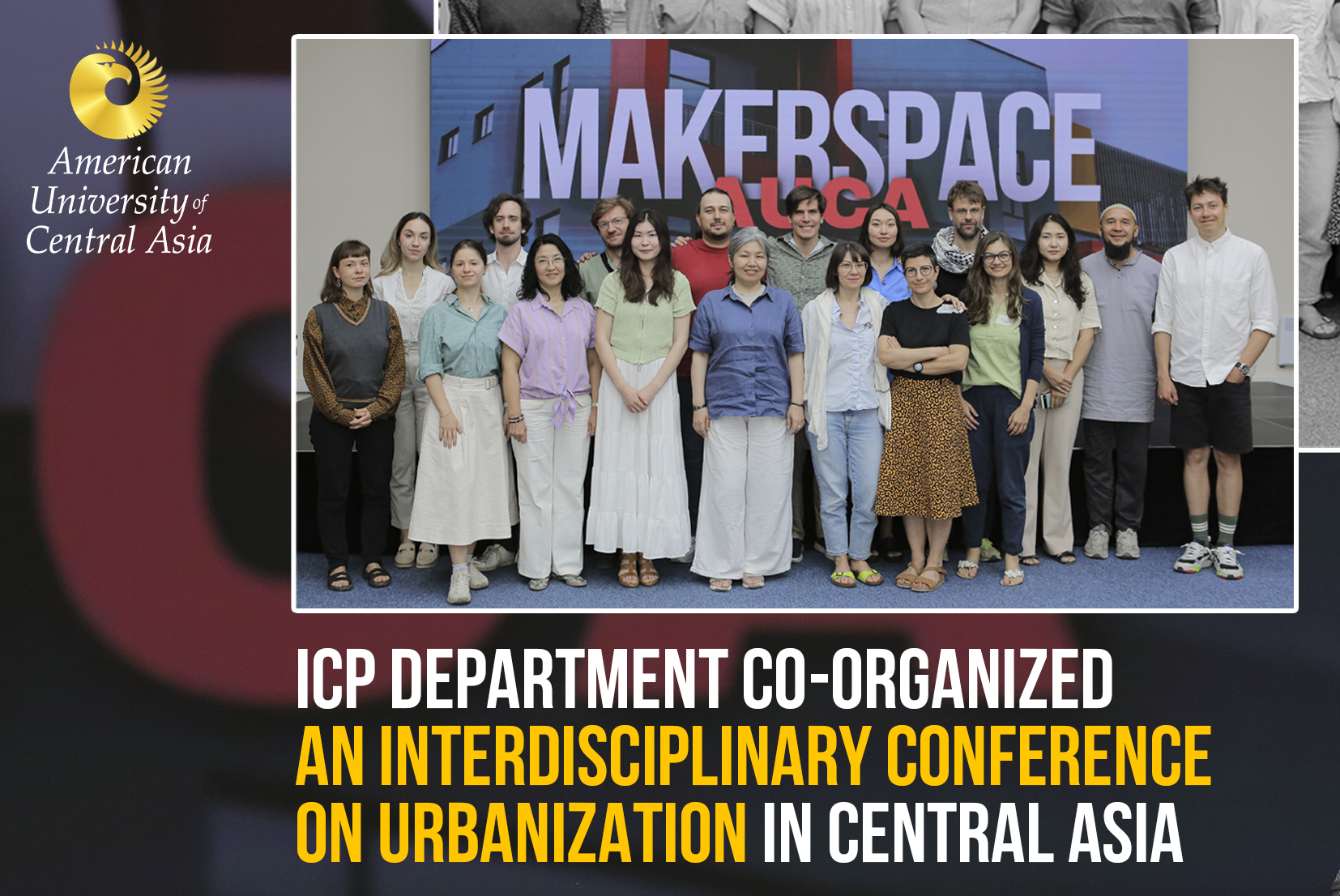ICP Department Co-organized an Interdisciplinary Conference on Urbanization in Central Asia
July 9, 2025

, the �ǿ����� (�ǿ�����)’s and the co-organized the 6th Annual CASNiG conference titled "RE-Making the City: Urbanization with its opportunities and challenges in Central Asia" in Bishkek on 8-10 June 2025. The three-day event brought together scholars, urban practitioners, and students from Central Asia and Europe to analytically and critically reflect on the transformations taking place in Central Asian cities. The conference thematically ranges from urban governance and social inequality to environmental sustainability and cultural identity in rapidly evolving urban areas in Central Asia.
The opening day featured a workshop at IFEAC, focusing on urban interventions in Bishkek. Participants engaged in street-level urban explorations through which they emphasized the role of citizen agency in shaping urban spaces.
The second day was held at Ololo Bishkek with a keynote lecture by Dr. Emil Nasritdinov of �ǿ����� on “Nomadic Urbanism”. In his lecture, Dr. Nasritdinov highlighted how historical developments and contemporary urban design reveal in Central Asian contexts. Three thematic sessions followed. The first was related to the politics of urban planning in Almaty and the impacts of foreign cultural institutes in Central Asian cities. The second session included a workshop focusing on the political epistemology of infrastructure governance. The last session ended with presentations on social segregation and inequality which encompassed subjects about elite women's mobility in Tajikistan, housing problems in Bishkek, and the remote ethnography in conflict zones.
On the third and last day of the conference, the participants convened at �ǿ�����’s Makerspace and began with a session on climate change and urban resilience. Presenters highlighted community-based solutions in Naryn, sustainable revitalization projects in Bishkek’s industrial zones, and findings from the ADB’s national urban assessment in Kyrgyzstan. The next session explored the socio-economic and socio-cultural aspects of urban spaces. Presentations demonstrated Bishkek’s Soviet architectural legacies, the emergence of a coffee-drinking urban middle class, and the book launch on“M����������ٰܳ첹��” co-authored by Egor Muleev and Dr. Wladimir Sgibnev.
The 6th Annual CASNiG conference has provided an important platform for critical dialogue and collaborative knowledge production. As cities in the region continue to grow and change, such platforms will certainly shape how scholars, policymakers, and citizens alike think about the urban futures of Central Asia.
